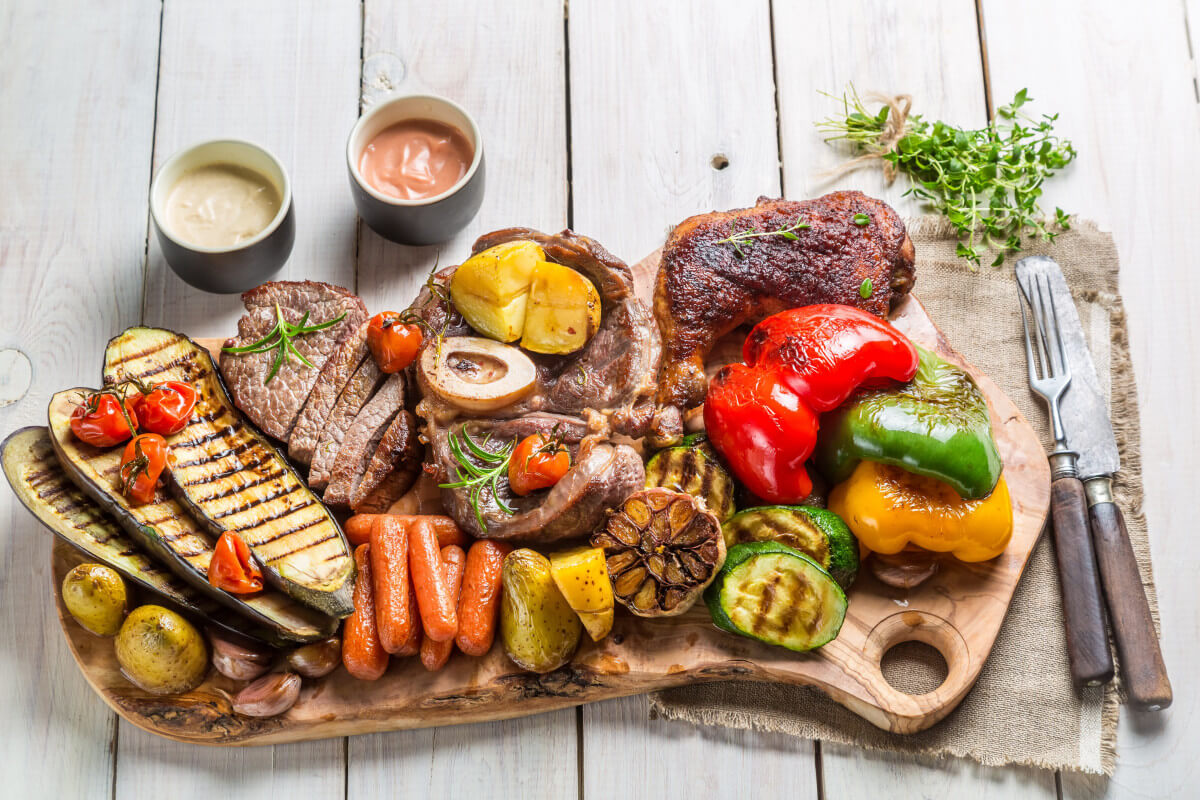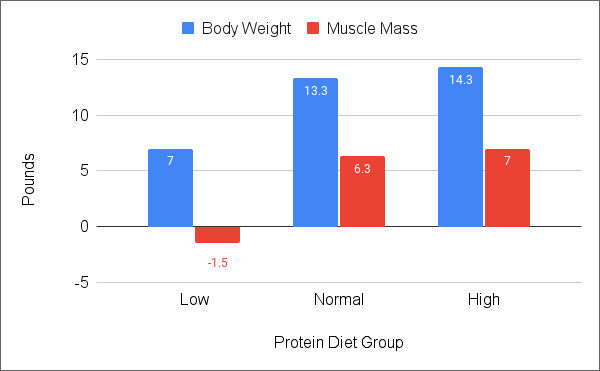Protein is essential for the human body’s growth, maintenance, and proper functioning. It plays a critical role in various physiological processes and overall health.

Here are some critical functions of protein’s role in the human body.
1. Tissue Repair and Building. Protein helps repair and build the body’s tissues, contributing to the maintenance and growth of tissues.
2. Immune System Support. Proteins keep the immune system strong and contribute to the body’s defense against infections and illnesses.
3. Metabolic Reactions. Proteins drive metabolic reactions in the body and play a role in various biochemical processes.
4. Enzymes and Hormones. Proteins comprise enzymes that power many chemical reactions and hormones that regulate various bodily functions.
Recommended Daily Protein Intake
The recommended daily protein intake varies based on activity level, weight, age, sex, and health status.
The Recommended Dietary Allowance (RDA) for protein in the US is 0.36 grams per pound. (1)
The RDA is theoretically the minimum amount of protein needed to meet basic nutritional requirements and prevent malnutrition.
However, a 2010 study that used a different analysis method concluded that the RDA for the minimum amount of protein needs to be higher. They recommend that adults consume a minimum of .6 grams per pound of body weight daily. (2)
It’s important to note that individual protein needs may vary based on specific circumstances such as muscle gain, weight loss, and exercise.
Protein intake, weight gain, and muscle mass
A study by George Bray and colleagues provides valuable insights into the effects of dietary protein content on weight gain, energy expenditure, body composition, and overeating. (3)
This single-blind, randomized controlled trial involved 25 men and women aged 18 to 35 with a body mass index between 19–30.
Following a 2–3 week weight stabilizing diet, participants were assigned to a “low protein,” “normal protein,” or “high protein” diet for eight weeks.
During the eight-week experiment, participants consumed 954 calories a day over baseline, or about 40% more than the amount required to maintain a starting weight. All participants gained weight.
The low-protein group consumed 47 grams of protein daily (0.31 g/lb body weight).
The normal protein group consumed 139 grams of protein a day (0.82 g/lb body weight).
The high-protein group consumed 228 grams of protein daily (1.36 g/lb body weight).
Participants consumed the same amount of carbohydrates throughout the study. Carbohydrates comprised 41% of total calories for all groups, and researchers adjusted protein and fat ratios to balance this.
Participants on the low-protein diet gained the least weight (7 lbs) compared to the normal and high-protein diet groups (13.8 lbs).
However, those on the low-protein diet lost muscle mass (1.5 lbs). Meanwhile, both the normal and low-protein groups gained muscle mass (6.3 lbs and 7 lbs, respectively).

This study suggests that consuming the RDA minimum protein requirement could result in muscle loss, even when consuming excess calories.
You can also see that the additional weight gain of the normal and high protein diet groups is due to increased muscle mass.
Your personal protein needs will be influenced by health, age, weight, goal (weight maintenance, muscle gain, or fat loss), and physical activity level.
Before determining your protein needs, you should discover how much protein you eat daily. To do this, use a notebook or your smartphone to record the protein content of every meal and snack.
Record your protein intake for a few days. Then, calculate your grams per pound of body weight. Compare to the RDA and the Bray study.
What you choose to do from there will depend on your goals.
1. Panel on Macronutrients, et al. Dietary Reference Intakes for Energy, Carbohydrate, Fiber, Fat, Fatty Acids, Cholesterol, Protein, and Amino Acids. National Academies Press, 2005, p. 589. DOI: 10.17226/10490.
2. Elango, Rajavel, et al. “Evidence That Protein Requirements Have Been Significantly Underestimated:” Current Opinion in Clinical Nutrition and Metabolic Care, vol. 13, no. 1, Jan. 2010, pp. 52–57. DOI: 10.1097/MCO.0b013e328332f9b7.
3. Bray, George A., et al. “Effect of Dietary Protein Content on Weight Gain, Energy Expenditure, and Body Composition During Overeating: A Randomized Controlled Trial.” JAMA, vol. 307, no. 1, Jan. 2012, p. 47. DOI: 10.1001/jama.2011.1918.